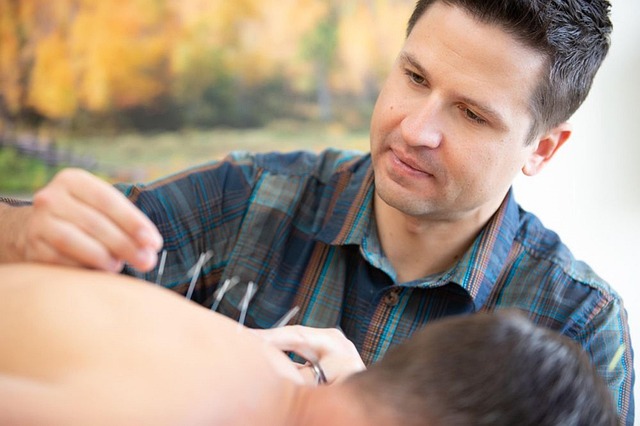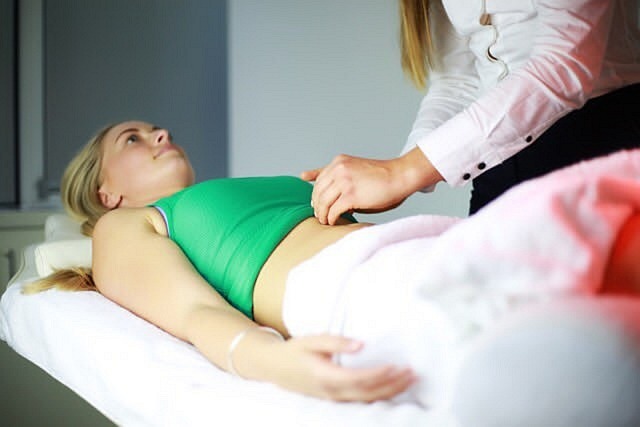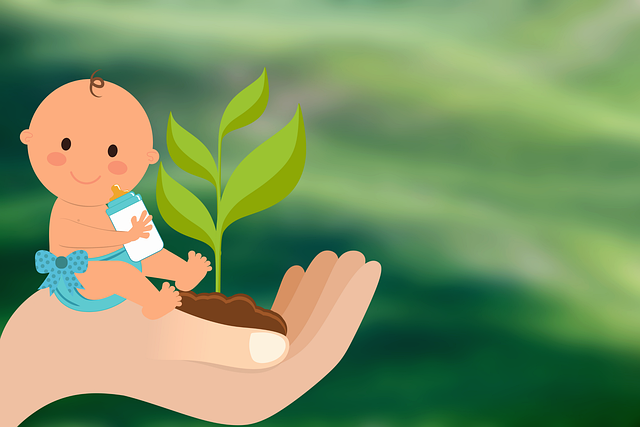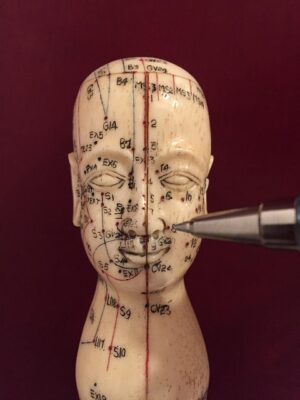Acupuncture for infertility in Austin has gained popularity as a complementary treatment for women and couples facing fertility challenges, especially with conditions like Polycystic Ovary Syndrome (PCOS). This ancient Chinese practice stimulates Qi flow through specific needle insertion points to regulate hormones, reduce stress, and improve blood circulation. It enhances the chances of successful IVF treatments by calming minds and bodies, fostering a healthier environment for sperm and egg development. Acupuncture also supports natural conception by restoring ovulatory patterns and improving egg quality. Real-life success stories highlight its holistic benefits, making it a valuable addition to conventional fertility treatments. Choosing an experienced Austin acupuncture practitioner specializing in women's health and fertility is crucial for optimal results.
“Women and couples facing fertility challenges often turn to acupuncture as a complementary treatment option. This ancient practice, known for its effectiveness in balancing energy flow, has gained popularity as a supportive therapy for IVF (In Vitro Fertilization) and natural conception. Acupuncture for infertility offers a holistic approach, addressing not just the physical aspects but also the emotional well-being of patients. In this comprehensive guide, we’ll explore the science behind acupuncture’s fertility benefits, real-life success stories, and how it can be integrated with other treatments, providing hope and alternative solutions for those navigating their infertility journey.”
- Understanding Acupuncture for Fertility: An Overview of How It Works
- Benefits of Acupuncture for Women Facing Infertility Challenges
- Acupuncture vs. IVF: Exploring Alternative Approaches to Boost Fertility
- Success Stories: Real-Life Experiences with Acupuncture for Conception
- Choosing the Right Acupuncturist: Tips for Finding a Fertility Expert
- Integrating Acupuncture with Other Fertility Treatments: A Holistic Approach
Understanding Acupuncture for Fertility: An Overview of How It Works

Acupuncture for fertility has gained significant attention as a complementary treatment option for women and couples facing infertility challenges. This ancient Chinese practice involves inserting thin needles into specific points on the body to stimulate energy flow, or Qi. When it comes to supporting IVF (In Vitro Fertilization) or natural conception, acupuncture can help regulate hormonal imbalances, reduce stress, and improve overall reproductive health.
In the context of women’s health in Austin, PCOS (Polycystic Ovary Syndrome) is a common issue that can impact fertility. Acupuncture has been shown to be effective in managing PCOS symptoms, such as irregular periods and elevated androgen levels, which can enhance the chances of successful pregnancy prep in Austin. By targeting specific acupuncture points, practitioners aim to restore balance to the body’s natural systems, potentially increasing the likelihood of conception both naturally and with assisted reproductive technologies.
Benefits of Acupuncture for Women Facing Infertility Challenges

Acupuncture offers a natural and holistic approach to addressing infertility challenges faced by women. By targeting specific points on the body, this ancient practice stimulates the release of healing responses and regulates hormones essential for reproductive health. For women dealing with conditions like Polycystic Ovary Syndrome (PCOS), acupuncture can help balance hormone levels, improve ovulation, and enhance overall fertility.
In addition to supporting IVF (In Vitro Fertilization) treatments, acupuncture serves as an excellent tool for natural conception preparation in Austin. It helps reduce stress, a significant factor known to impact fertility. By calming the mind and body, regular acupuncture sessions can create an optimal environment for healthy sperm and egg development, increasing the chances of successful conception and pregnancy prep in women’s health Austin.
Acupuncture vs. IVF: Exploring Alternative Approaches to Boost Fertility

For many women and couples navigating fertility challenges, the decision between traditional IVF (In Vitro Fertilization) and alternative treatments like acupuncture is a significant one. Acupuncture for infertility has gained traction as a complementary therapy, offering a natural approach to support reproductive health. While IVF remains a widely recognized and effective method, exploring alternative options such as acupuncture can provide unique benefits tailored to each individual’s needs.
In the context of women’s health Austin, acupuncture focuses on balancing energy flow within the body, particularly targeting areas associated with fertility. It is especially beneficial for conditions like Polycystic Ovary Syndrome (PCOS) by aiding in cycle regulation. This ancient practice can help reduce stress and anxiety, known to impact fertility, and promote overall well-being. By stimulating specific points, acupuncture may enhance ovulation, improve egg quality, and even support a healthy uterine environment, thereby increasing the chances of successful conception, whether through IVF or natural means.
Success Stories: Real-Life Experiences with Acupuncture for Conception

Many women and couples seeking to conceive through IVF or natural means are turning to acupuncture for infertility as a complementary treatment option. Real-life success stories abound, with countless individuals sharing their positive experiences navigating the journey to parenthood with the help of acupuncturists specializing in fertility. These stories often highlight the holistic nature of acupuncture, addressing not just physical symptoms but also mental and emotional well-being – factors that can significantly impact fertility.
For instance, several women with polycystic ovary syndrome (PCOS) have reported improved ovulatory patterns and successful pregnancies after integrating PCOS acupuncture into their pregnancy prep Austin routines. Additionally, couples facing IVF challenges have expressed relief from the stress and anxiety associated with the process, attributing some of their success to regular acupuncture sessions in Austin. These experiences underscore the potential benefits of combining conventional medical treatments with alternative therapies like acupuncture for infertility, fostering a more balanced approach to achieving conception and ultimately building families.
Choosing the Right Acupuncturist: Tips for Finding a Fertility Expert

When seeking acupuncture-based fertility treatments, choosing the right practitioner is paramount. Look for an acupuncturist who specializes in women’s health and has extensive experience with IVF support and natural conception. In Austin, many clinics offer pregnancy prep services, so consider practitioners skilled in cycle regulation as well.
Check their credentials, certifications, and any specialized training in reproductive health. Reading reviews from other patients, especially those who have undergone similar treatments for infertility, can provide valuable insights into the practitioner’s approach and success rates. Remember, building a rapport with your acupuncturist is essential; you’ll be working closely together to navigate this journey towards parenthood.
Integrating Acupuncture with Other Fertility Treatments: A Holistic Approach

When exploring acupuncture-based fertility treatments, many women and couples turn to this ancient practice in conjunction with other infertility interventions like IVF. Acupuncture offers a holistic approach to supporting reproductive health by addressing not just symptoms but the underlying causes of infertility. By integrating acupuncture with medical treatments, patients can experience enhanced overall well-being during their fertility journey.
This complementary therapy focuses on restoring hormonal balance Austin and nurturing the body’s natural healing mechanisms, particularly in cases like Polycystic Ovary Syndrome (PCOS). Acupuncturists in Austin tailor treatments to individual needs, targeting specific points to regulate hormones, reduce stress, and improve blood circulation—all factors crucial for optimal fertility. Such a multifaceted approach ensures that women’s health is supported on multiple levels, potentially increasing the chances of successful conception both naturally or through assisted reproductive technologies.
